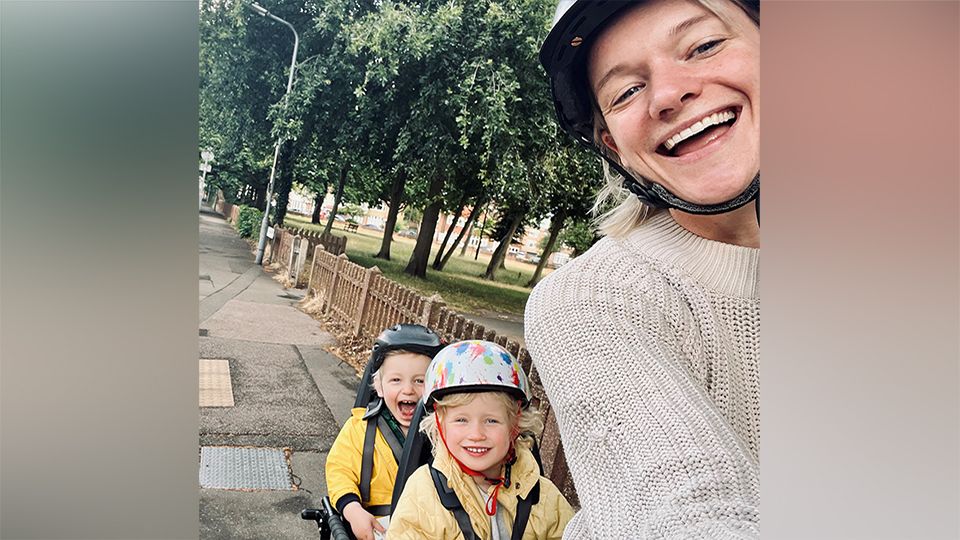In ESG Clarity’s Sustainable Summer series, investment professionals from the responsible investment space share their habits and summer activities that are contributing to a more sustainable world.
Here, Emily Petersen, portfolio director and team manager at Cazenove Capital, shares how she has transformed her garden, her charity work around impacting investing and her campervan holiday in Scotland.
To view the full Sustainable Summer series click here.
How has your year been so far? Have you stuck to any sustainable New Year’s Resolutions?
This year I decided to keep my resolutions succinct, having learnt from decades of forgetting them by February. I set myself the challenge to drive less in London (for my sanity as well as the environment) and got an electric bike through the work cycle scheme. It can fit both my children and the groceries on it – it’s incredible!
How are you connecting with nature this summer or protecting biodiversity near to where you live or work?
Last year, we had a ‘ShOffice’ (shed/office) built and a chance to start again with the garden. It’s only about five metres squared but I’ve never managed to make it look good, so instead of planting flowers we decided to put in a few apple trees and re-wild the sides, with a multi-specie lawn in the middle. The wildflowers now come up to my shoulders, changing week on week and we’ve got a lot more butterflies, bees and other lovely creatures. Even better, it requires zero maintenance.
What do you find are the benefits of spending more time in the great outdoors?
I love living in the city, but nothing beats a dusky country walk and the serenity that comes afterwards.
Are you planning a holiday? How will you make it ESG-friendly?
We’ve got 10 days in a campervan in Scotland this August – it’s got solar panels so hopefully we can veer from the beaten track, and find somewhere remote and serene to settle. Luckily, my husband is Danish (resourceful, practical, used to rain) and also a chef, which mitigates my usual concerns about being hungry. He did, however, ask what a midge is and is wondering why everyone keeps mentioning them…
Are you taking part in any charity events or initiatives benefiting the climate or society?
I’m a trustee of a homelessness charity and we’ve recently secured impact investment for a new property. There has been a lot of support and it’s really exciting to show new people the wonders of impact investment.
Has your employer got any sustainable activities planned this summer? What does it do in the workplace to ensure it mitigates its impact on the environment?
The Schroders Group recently published both its Climate Transition Action Plan and Task Force on Climate-Related Financial Disclosures report, and we’re the largest investment manager by assets under management to have greenhouse gas emissions reduction targets verified by the Science-Based Targets Initiative.
Since 2019, we’ve been operating our business on a climate-neutral basis (using offsets) and have significantly reduced corporate air travel.
Members of our growing Schroders Planet Positive community have shared lots of great ideas to help reduce our impact on the environment, such as how to re-use old tech hardware, buy more sustainable fashion, help with greening small urban spaces and other great lifestyle hacks.
What would you like to see more of in the investment industry from a sustainability perspective?
I’d like to see a faster transition of capital towards sustainable businesses and away from those that aren’t. The scale of capital that needs to move to make meaningful progress is so vast, that I think we need an increasing amount of innovation to make that transition.
First, I would love to see more blended finance opportunities – allowing government, philanthropic and impact capital to be the catalyst for other investors to follow.
Second, the problems can’t be solved by governments and professional/high-net-worth investors alone. We need the wider population to have access to high quality sustainable investment, with active management and good stewardship, so they can feel confident their savings can be invested sustainably, ultimately leading to more capital heading to the right places.








